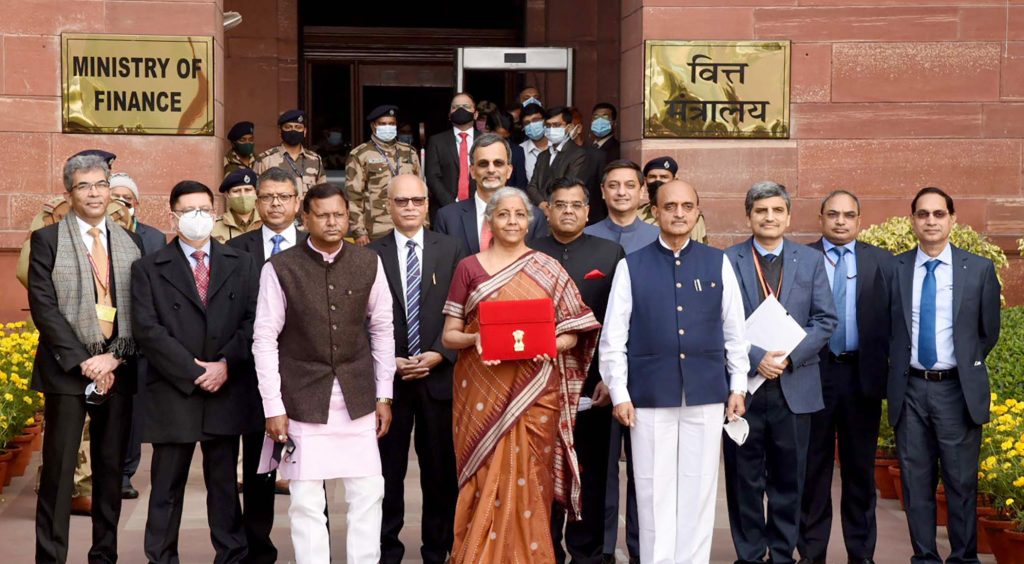Now Reading: Analysis on SEBI’s Discussion Paper on Regulatory SandBox
-
01
Analysis on SEBI’s Discussion Paper on Regulatory SandBox
Analysis on SEBI’s Discussion Paper on Regulatory SandBox
SEBI releases a Discussion paper on regulatory sandbox
SEBI realized FinTech potential in effectuating investor protection and promoting the security market, SEBI releases a discussion paper on “Regulatory Sandbox” to boost development and adoption of FinTech solutions in the securities market. Regulatory Sandbox is a live testing environment where product, processes, service or business model can be deployed on a limited set of the eligible customers for a certain period having exemption or relaxation from SEBI regulations and guidelines.
Earlier this month, SEBI had proposed ‘Innovation Sandbox’ which was lubricated at providing information to FinTech companies which could not have been readily available to them, to enable their innovation on historical data in a closed system having regard to anonymity to promote innovation in the securities market before actually testing in a live environment on real customers. However, market players were concerned about the scope of its applicability to SEBI rules, to what extent exemptions may be granted. Thus, a notion of confusion had flown among market players and thus, demanded a lot of clarity on the same.
In that light, SEBI proposed a regulatory sandbox which would enable financial institutions regulated by SEBI to test their innovation and financial technology in a live environment and on real customers subject to necessary safeguards maintained for investor protection and provide the extent of exemptions, applicability, and procedural requirements. This regulatory sandbox came into light in the backdrop of innovations without proper regulatory oversight which have been detrimental to investors.
SEBI believes that innovation investor-centric experimentation can bring about better financial outcomes and deeper penetration and enable large scale financial inclusion. However, lack of due diligence, proposed solution similar to the market offering, lack of intention of deployment, etc. would not be permitted to operate on Regulatory Sandbox.
The purpose of Sandbox is to set off dialogue with the financial companies leveraging innovative technologies so that inventive step may be instituted in the regulatory framework of SEBI at an early stage and to identify and avoid the potential adverse events. This mechanism would facilitate direct and seamless information sharing between innovative firms and SEBI. On one hand, it would give a chance to FinTech industry to check their innovation while on other, it would help SEBI to frame policies that foster time saving and less transaction cost techniques and solutions for investors. The similar mechanism has been already devised by other regulators like RBI, IRDAI, etc.
This mechanism would stimulate many benefits like greater participation of the investor or people raising capital or providing services, increased financial inclusion and penetration of financial products in tier II or tier III town/cities and rural areas, easy accessibility for retail investors including reducing operational costs, increased transparency and lower transaction charges, etc.
Applicability
All the market participants registered under Section 12 of the SEBI Act will be eligible players for testing within the regulatory Sandbox. The market participant can come their own or through the way of FinTech services; regardless of who applies, the market participant will be considered the applicant for the purpose of the application and be responsible solely for all testing solutions.
Also, the paper fosters that depending on the application or response, the SEBI may consider other participants like FinTech Start-ups, and firms to be permitted for testing under a regulatory framework. For the interim solution, they may opt for innovation sandbox wherein they can do testing in a closed manner based on historical data.
Regulatory Exemptions
The exemptions that could be bestowed to the financial institution are –
· No exemption would be provided in case of the overarching principle of investor protection and market integrity like investor protection framework, know your customer (KYC) and Anti-Money Laundering and thus, would quintessential to carry out proper due diligence.
· With the intention of a less-burdened regulatory mechanism, SEBI has proposed specific relaxation according to the case to case basis after analyzing the testing requirements of Sandbox applications. The annexure 1 of Discussion Paper contains provisions that are mandatory to follow and also, categories where the exemption may be allowed. Mandatory regulatory compliances like confidentiality of information, handling of customer’s money and assets by intermediaries, prevention of money laundering and countering the financing of terrorism, Risk check, and KYC has to be maintained. However, relaxations may be provided in cases of net-worth, track record, registration fees, SEBI guidelines (technology risk management guidelines and outsourcing guidelines), financial soundness, etc.
· Also, the market participants have been enabled to request for relaxations from specific SEBI regulations/provisions if they think fit in terms of hampering their innovations or acting as a barrier to the entry of products in the market.
Eligibility criteria
SEBI has stipulated certain eligibility criteria for the applicant like genuineness of innovation, a genuine need for testing, limited prior offline testing, beneficiary to users, no risk to the financial system, the readiness of application or software, deployment post-testing, etc. These conditions must be afforded by the applicant for use Regulatory Sandbox. If an applicant has devised application but does not contain any innovative step or does not want to deploy it broadly, then such testing application cannot be proceeded with under the current proposal.
The applicant must not only provide all details of the plans, scope but also identify potential risk about the testing application and must fully aware associated with plans and take an informed consent of the user. The applicant shall also follow appropriate disclosure to risk, protection, and compensation norms and also set up a grievance redressal mechanism.
Application and Approval Process
If the applicant and project meet the eligibility criteria, the applicant may file an application (attached as Annexure 1) signed by the chief executive officer (CEO) or any officer authorized by him. SEBI shall review the application and within 30 days will inform the applicant about its suitability. Meanwhile, SEBI can also seek guidance from the applicant regarding the project. If the application is admitted, then SEBI will evaluate with the applicant’s specific regulatory requirement to be followed (including test parameters and control boundaries); then proceed with the application if the applicant is willing to adopt the suggested measures. The evaluation criteria would be scoring based upon information in the application on different parameters like profile, innovative technique, risk mitigation, feasibility to deploy, etc. After approval, the testing would be done, and the applicant is required to disclose potential risks to users and take informed consent or acknowledgment about the risk presented.
If the applicant wants to do some material change after approval, then he should seek SEBI’s approval prior in 1 month specifying proposed plans with reasons. The duration of the testing period is a maximum of 9 months and can be extended up to 3 months upon request. He is also required to submit interim reports of testing. After the testing is done, the applicant is required to submit the final report containing key outcomes, performance indicators, findings of the test, etc. These reports shall be confirmed by CEO/authorized individual and a SEBI officer would be assigned to guide application for deployment and testing in the sandbox.
The application may also be revoked if undermining any of the eligibility criteria and provide false information, gone in liquidation, risk of cybersecurity involved, etc.
Thus, this mechanism will not only leverage future long term opportunities to FinTech Companies to expand its horizon its terms of innovation in better technologies but also provide end customers with a deeper sense of inclusion in financial service and make an environment investment friendly because of easy accessibility, lower transaction cost, and reliable software. Also, SEBI in a symbiotic relationship with FinTech Companies in future as a direct applicant will foster a seamless information sharing system and would help in watching out the activities and transactions of the market players and avoiding white collar crimes like insider trading, fraud, manipulation, etc. Thus, this can a remarkable step in boosting confidence in the securities market and make the country’s economy to a higher loop.








